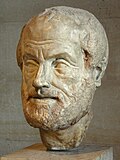Social sciences
The social sciences are a group of academic disciplines that study human aspects of the world. Social Sciences includes anthropology, archaeology, economics, geography, political science, psychology, social philosophy and sociology.[1] They are different from the arts and humanities, and application of the scientific method is important. Most of the social sciences require doing a lot of research, such as making surveys. Such research is called "social research". Some subjects, such as history, are sometimes social sciences and sometimes humanities.
The term "social sciences" has been used for over 200 years and mostly originates from a thinker named Auguste Comte. Many of the fields of social science have come about since then. In America, much of the thought and practice of social science came from the University of Chicago and other universities.
Social Sciences Media
Buyers bargain for good prices while sellers put forth their best front in Chichicastenango Market, Guatemala.
A depiction of world's oldest university, the University of Bologna, in Italy
A trial at a criminal court, the Old Bailey in London
Ferdinand de Saussure, recognized as the father of modern linguistics
Wilhelm Maximilian Wundt was the founder of experimental psychology.
Émile Durkheim is considered one of the founding fathers of sociology.
References
- ↑ Glossary Archived 2008-04-12 at the Wayback Machine at nces.ed.gov. Retrieved 25 April 2008
Other websites
- Social Science Virtual Library Archived 2012-03-06 at the Wayback Machine
- UC Berkeley Experimental Social Science Laboratory
- Social Science Information Gateway Archived 2006-08-30 at the Wayback Machine (UK)
- History of Social Science Archived 2009-05-04 at the Wayback Machine
- On the Social Sciences Critical Essays
- praxeology as the method of the social sciences
- in defense of extreme apriorism







